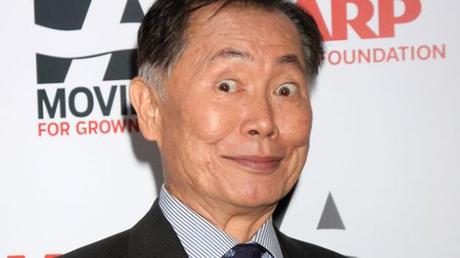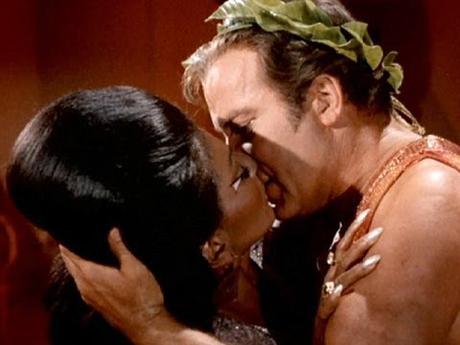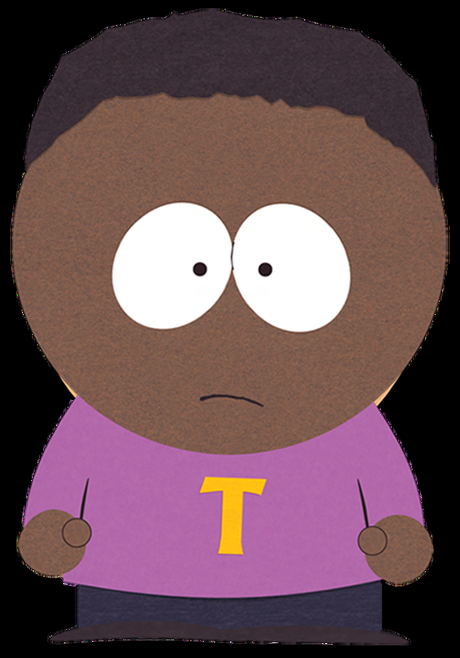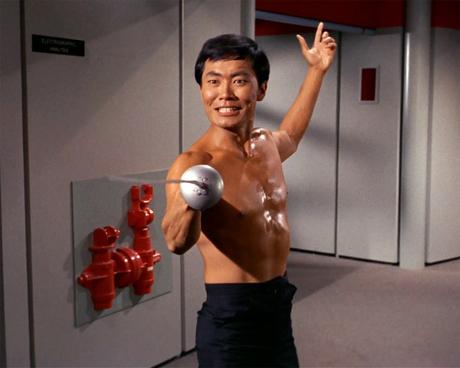
Star Trek has always been a universe of inclusion.
The television show originated in an era that included the assassination of a President, the escalation of the USA's involvement in the Vietnam War, and racial tensions on a national scale. It was a decade of social upheaval, and out of the morass came Gene Roddenberry's brainchild. It was a sci-fi show that was hopeful and optimistic, that emphasized the best in human beings and the wonders that could be accomplished through global cooperation. Star Trek was a response to the cautionary nuclear war narratives of 1950s science-fiction, films like The Day the Earth Stood Still. It stood in stark contrast to the paranoia-filled television show The Twilight Zone, which more often than not examined the darker side of man's nature. Star Trek was, and remains, a hopeful promise in a world filled with turmoil.
It may seem pedestrian to the average viewer in 2016, but in 1966 having a television show with a mult-racial and multi-ethnic crew was groundbreaking. You could argue that Lieutenant Uhura was nothing more than a glorified phone operator, but I wouldn't say that to Nichelle Nichols if I were you. The idea of a black female character who was NOT in a position of servitude in 1966 meant a lot. You also had Walter Koenig's Ensign Pavel Chekov, a Russian on television as a good guy, at a time where the USSR and the USA were a Klingon's eyebrow hair away from nuking each other.
Then there was helmsman (and by Star Trek VI: The Undiscovered Country, Captain) Hikaru Sulu, portrayed by the one, the only, George Takei.
To say there was a dirth of Asian actors on television in the 1960s is an understatement the size of William Shatner's ego. Other than George Takei's Sulu the only other actor I can think of off-hand is Bruce Lee as Kato in The Green Hornet. That's how little Asians were represented on TV. The inclusion of an Asian character, particularly one from Japan, was no less signficant than Nichols' or Koenig's characters. Remember Americans were only two decades removed from WWII by the time Star Trek rolled around. Many men who fought in the South Pacific remembered the atrocities committed by the Japanese. Making the pilot of the Starship Enterprise Japanese? That was a bold move, even for Gene Roddenberry.
Yet despite the mult-ethnic, multi-cultural, and social justice foundations of Roddenberry's program, one glaring omission from the show (at least glaring to this 21st century writer's eyes) was the inclusion of an LGBT character. At the time most suspected that George Takei was gay, including Gene Roddenberry. In the fantastic documentary To Be Takei, George discusses how he once spoke to Roddenberry about including a gay character in the show. Although Roddenberry was sympathetic to the LGBT cause, he knew he could push the envelope only so far. Studio execs would never go for it. In point of fact this was just after the episode "Plato's Stepchildren" aired, featuring the first interracial kiss on television between Kirk and Uhura. The episode received the lowest ratings ever and many NBC South affiliates refused to air it. (Shocking I know.) Network television and audiences in general just weren't ready for it.

In 2016, audiences take the idea of gay characters on television and film as a matter of course. Unless you are a member of the Westboro Baptist Church it's really not that big of a deal. Yet even though Star Trek: The Next Generation dealt with LGBT issues, such as in the episode, "The Outcast," there's never been an openly gay character in the Star Trek universe. It's surprising considering the culture of inclusiveness Star Trek has propagated over the last fifty years. Well you can't say that anymore.
In a recent interview with Australia's Herald Sun, current Sulu John Cho, revealed that the character is now gay and appears so in the movie. There's a brief scene in the upcoming Star Trek Beyond showing that Sulu has a daughter with a same-sex partner. (For those of you unaware, Sulu's daughter, Demora, was mentioned in the original series and made an appearance in 1994's Star Trek: Generations. ) Co-writers Justin Lin and Simon Pegg made this decision as a way to honor Takei, who's been a sci-fi icon and LGBT advocate for years. You'd think Takei would be thrilled.
He wasn't.
John Cho revealed the bombshell about Sulu's sexual orientation over a year ago. The response was not what Cho expected:
"I told him, 'Be imaginative and create a character who has a history of being gay, rather than Sulu, who had been straight all this time, suddenly being revealed as being closeted.'"Not long after director Justin Lin also called Takei and echoed Cho's proclamation. Again Takei remained decidedly opposed and responded to Lin's news thusly:
"This movie is going to be coming out on the 50th anniversary of Star Trek, the 50th anniversary of paying tribute to Gene Roddenberry, the man whose vision it was carried us through half a century. Honor him and create a new character. I urged them. He left me feeling that that was going to happen."Then several months later Takei received a letter from co-writer Simon Pegg praising him for his advocacy in the LGBT movement. This led Takei to believe that Lin had taken Takei's advice, until Cho called the actor recently and informed him otherwise.
To his credit, Simon Pegg has not responded in a nasty or vitriolic manner to Takei's statements. I wouldn't expect him to anyway. Having said that Pegg told The Guardian he respectfully disagrees with Takei's take:
"He's right, it is unfortunate, it's unfortunate that the screen version of the most inclusive, tolerant universe in science fiction hasn't featured an LGBT character until now. We could have introduced a new gay character, but he or she would have been primarily defined by their sexuality, seen as the 'gay character', rather than simply for who they are, and isn't that tokenism? Justin Lin, Doug Jung and I loved the idea of it being someone we already knew because the audience have a pre-existing opinion of that character as a human being, unaffected by any prejudice. Their sexual orientation is just one of many personal aspects, not the defining characteristic. Also, the audience would infer that there has been an LGBT presence in the Trek Universe from the beginning (at least in the Kelvin timeline ), that a gay hero isn't something new or strange. It's also important to note that at no point do we suggest that our Sulu was ever closeted, why would he need to be? It's just hasn't come up before."I didn't write this article to choose sides because the truth is Takei and Pegg are both right. Although the decision to ret-con Sulu as a gay character seems like pandering. It's clear from Takei's statements that Roddenberry never intended Sulu to be gay. Takei's logic of creating a new LGBT character is perfectly sound. You build the character and make the audience emotionally invested. The sexual orientation doesn't define them. To rewrite history and contradict the original intentions of Gene Roddenberry's character comes across disingenuous. Some of you may remember I had similar feelings regarding the "give Captain America a boyfriend" campaign. Again shoehorning in Sulu's sexual orientation feels like Pegg and company are trying to be inclusive for inclusiveness' sake, and a fundamental aspect of Star Trek was that the inclusiveness never felt forced.
Having said all this I'm perfectly fine with Sulu being gay. I understand Pegg's position just as much as Takei's. The one risk in creating a brand new LGBT character in the Star Trek universe is creating a token character, where sexual orientation solely defines them. Kind of like this guy:

The fact that Sulu is not closeted is a big deal. It demonstrates how the 23rd century has evolved to the point where society doesn't have to have closeted people. Also I like Pegg's point that revealing Sulu's sexual orientation now shows that there was an LGBT presence all along. It means that aspect of his life doesn't define Sulu, it's only one part of many aspects of what makes him a human being. Sulu's orientation also makes this scene from Star Trek Into Darkness much more impactful because it destroys the stereotype of the effeminate gay man:
Whether you agree or disagree with Pegg and Lin's decision to make Sulu gay, doesn't necessarily rest solely on your gay rights opinions. I think it's more about how married you are to Star Trek cannon. If you're a Star Trek traditionalist you'll probably hold steadfast that Sulu is straight. If you're not overly beholden to cannon (as I am) you'll probably be a little more flexible. Regardless of your position the fact is Sulu is gay and that's not changing, at least in the Star Trek world J.J. Abrams and company have established.
And Star Trek Beyond 's success doesn't hinge either way on that fact alone.


